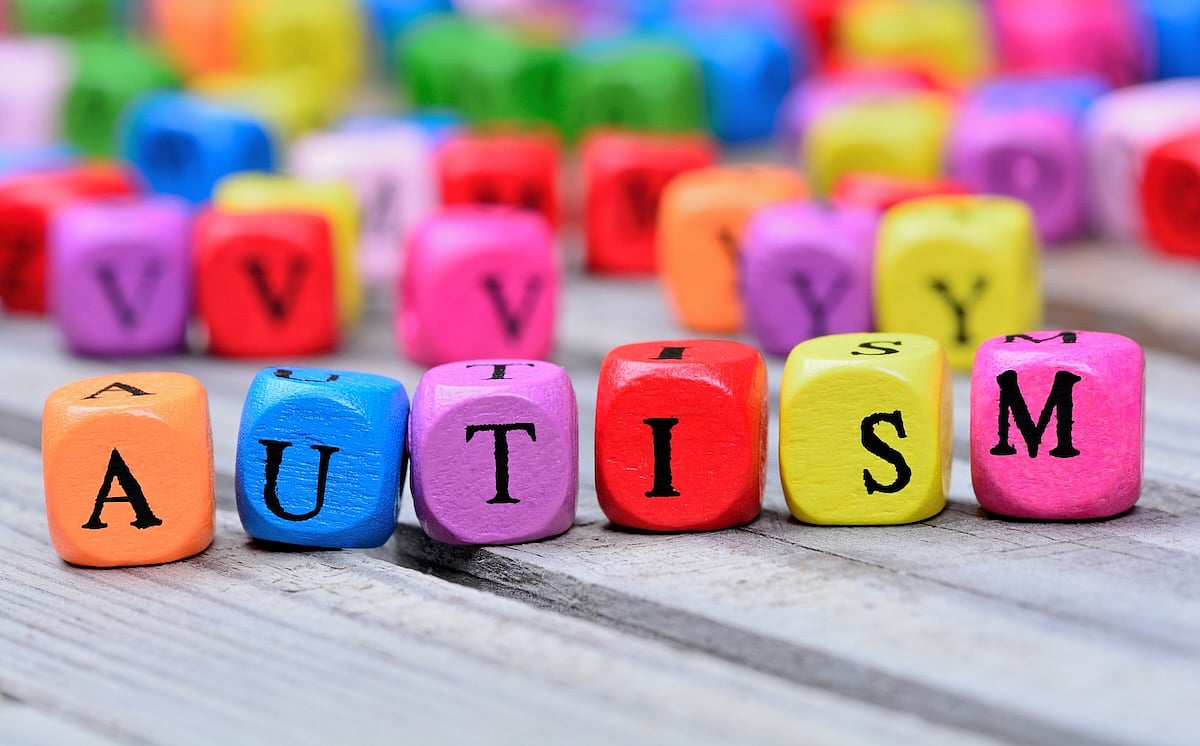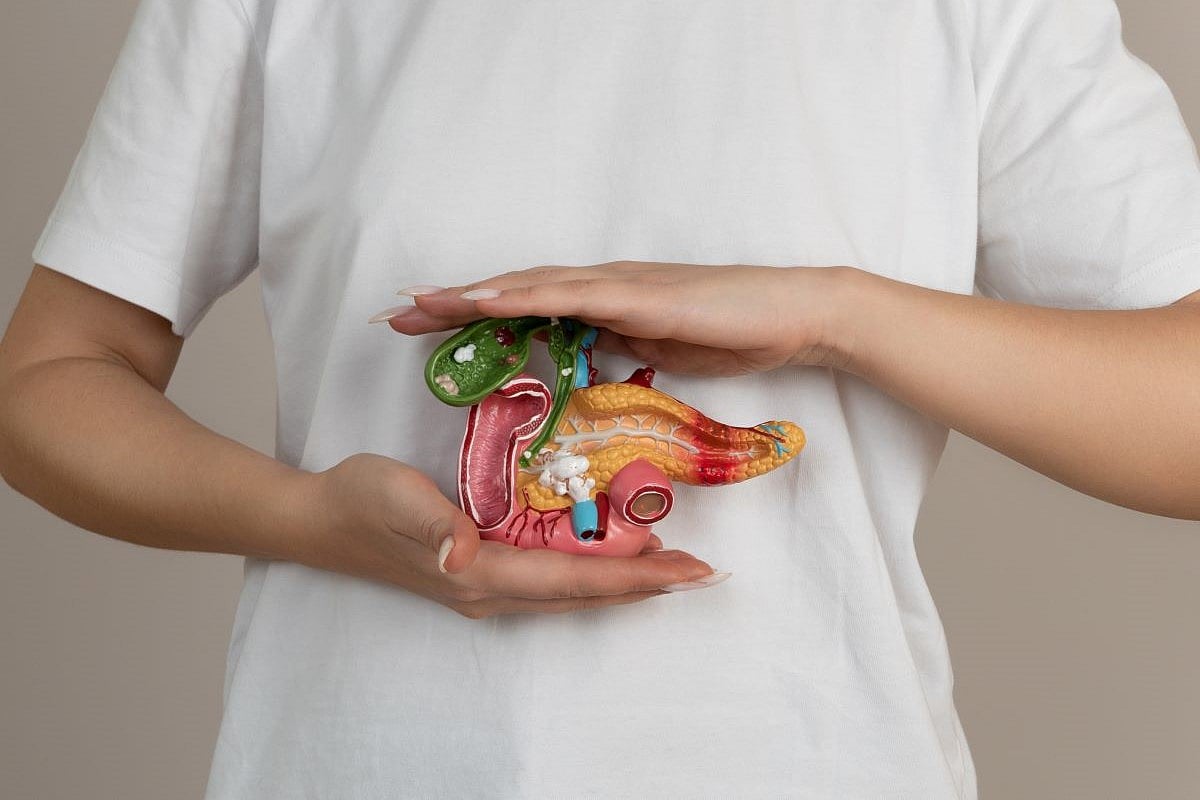Manténgase sano!
Mantenerse informado(a) promueve la buena salud. Manténgase al día con las últimas noticias médicas encontradas aquí.
14 Aug
ADHD Meds Linked To Lower Risk Of Harmful, Life-Threatening Behaviors
ADHD patients who begin drug treatment within 3 months of diagnosis have significantly lower odds of suicidal ideation, substance misuse, car accidents and criminality, according to a new study.
13 Aug
Gut Bacteria’s Surprising Role in Insomnia
A new study identifies 14 types of gut bacteria that appear to increase the risk of insomnia and 8 that may protect against the sleep disorder.
12 Aug
Does Losing Weight Before IVF Improve Chances For Pregnancy?
A new study finds women with obesity who lose weight before IVF have increased odds of getting pregnant, especially through natural conception.
Fewer Americans Are Drinking Alcohol as Health Concerns Rise
Fewer U.S. adults say they drink alcohol, and more now believe that even moderate drinking can harm their health, a new Gallup poll finds.
The survey, conducted in July, found that 54% of Americans drink alcohol — the lowest rate Gallup has recorded in nearly 90 years of tracking. That’s down from most of the past seve...
- I. Edwards HealthDay Reporter
- |
- August 14, 2025
- |
- Página completa
Sleeping Sickness Eliminated in Kenya, WHO Says
The World Health Organization (WHO) has recognized Kenya as having eliminated human African trypanosomiasis (HAT), also known as sleeping sickness, as a public health problem.
Kenya is now the 10th country to reach this milestone. HAT is the second neglected tropical disease it has eliminated, with the first being Guinea-worm disease...
- I. Edwards HealthDay Reporter
- |
- August 14, 2025
- |
- Página completa
Wegmans Recalls Cheese Products Over Listeria Risk
Wegmans is recalling several cheese products, including its medium camembert, because they may be contaminated with listeria, which can cause serious illness.
The U.S. Food and Drug Administration (FDA) issued the alert Wednesday. The recalled products were sold between July 1 and Aug. 12 at Wegmans locations in Connecticut, Delaware, Mary...
- I. Edwards HealthDay Reporter
- |
- August 14, 2025
- |
- Página completa
New Means Found For Treating Blood Staph Infections
A new way to battle bloodborne staph infections could help save lives while combating the rise of antibiotic-resistant bacteria, according to new clinical trial results.
Two intravenous doses of the antibiotic dalbavancin delivered seven days apart worked just as well as daily IV doses of conventional antibiotics in quelling Staphyloco...
- Dennis Thompson HealthDay Reporter
- |
- August 14, 2025
- |
- Página completa
Want Better Test Scores? Try Jumping Jacks Beforehand, Study Says
Kids’ academic test scores might improve if they boost their brain power with some high-intensity exercise before picking up a pen, a new pilot study says.
Children had significantly higher test scores after they spent nine minutes performing high-knee walking, jumping jacks, lunges and squats, researchers report in the journal P...
- Dennis Thompson HealthDay Reporter
- |
- August 14, 2025
- |
- Página completa
Fighters From Poor Neighborhoods Might Have Higher Brain Risk
It’s a time-honored and somewhat romantic tale: The young fighter who rises from poverty to make a name for themselves.
But reality might take some shine off such stories, a new study says.
Participants in combat sports like boxing or mixed martial arts who grew up in poor neighborhoods might be more likely to suffer brain chan...
- Dennis Thompson HealthDay Reporter
- |
- August 14, 2025
- |
- Página completa
Gut Docs Lose Their Edge Leaning On AI Assistance For Colonscopy
Artificial intelligence (AI) is being touted as a means of improving doctors’ effectiveness, but the new tool might dull their skills in some instances, a new study argues.
Specifically, doctors became worse at performing colonoscopies after AI started assisting them, researchers reported Aug. 12 in The Lancet Gastroenterology &a...
- Dennis Thompson HealthDay Reporter
- |
- August 14, 2025
- |
- Página completa
Scalp Implant Improves Real-World Epilepsy Tracking
An under-the-scalp implant can improve monitoring of a person’s epilepsy, giving doctors data they need to improve control over seizures, a new pilot study says.
Epilepsy patients must now keep a diary to track their symptoms.
But these self-observations are only right about half the time, researchers found when they compared p...
- Dennis Thompson HealthDay Reporter
- |
- August 14, 2025
- |
- Página completa
Advanced Tech Making Type 1 Diabetes More Manageable
Advanced technology has boosted the ability of children and adults to manage their type 1 diabetes, a new study says.
The number of kids under 18 who’ve achieved optimal control over their blood sugar skyrocketed 171% between 2009 and 2023, from 7% to 19%, researchers reported Aug. 11 in JAMA Network Open.
Meanwhile, t...
- Dennis Thompson HealthDay Reporter
- |
- August 14, 2025
- |
- Página completa
Tennis Star Monica Seles Reveals Her Battle With Myasthenia Gravis
Tennis great Monica Seles is speaking out about her battle with myasthenia gravis, a rare autoimmune disease that weakens muscles.
The 51-year-old, who won nine Grand Slam titles and was inducted into the International Tennis Hall of Fame, said she first noticed symptoms while playing casual tennis with family.
“I would be play...
- I. Edwards HealthDay Reporter
- |
- August 13, 2025
- |
- Página completa
Coffee Is Mostly Safe, Study Finds, But Some Contaminants Remain
Your morning coffee is mostly free from harmful levels of toxins and contaminants, but a new investigation shows there’s room for improvement.
“While some contaminants were present, most were found at minimal levels and well below the European Union’s safety limits per 6-ounce serving. This means coffee is generally safe,...
- I. Edwards HealthDay Reporter
- |
- August 13, 2025
- |
- Página completa
FDA Approves First Drug for Chronic Lung Condition Bronchiectasis
For the first time, people with bronchiectasis will have a treatment option.
The U.S. Food and Drug Administration (FDA) has approved Insmed’s daily pill brensocatib, which will be sold under the brand name Brinsupri.
The drug is designed to treat non-cystic fibrosis bronchiectasis (NCFB), a chronic condition that damages...
- I. Edwards HealthDay Reporter
- |
- August 13, 2025
- |
- Página completa
Parents' Workplace Chemical Exposure Might Influence Child's Autism
A child’s symptoms of autism might vary according to their parents’ exposure to workplace chemicals, a new study says.
On-the-job chemical exposure among moms and dads prior to a child’s birth was significantly linked to increased autism severity, worse behavioral issues and poorer cognitive performance, researchers found...
- Dennis Thompson HealthDay Reporter
- |
- August 13, 2025
- |
- Página completa
Do You Have Long COVID? Depends Whom You Ask, Study Says
Do you suspect you have long COVID, but aren’t sure?
The answer you get will largely hinge on whom you ask, a new study says.
The medical field still lacks a clear answer as to what constitutes long COVID, despite hundreds of published studies and millions of sufferers worldwide, researchers reported Aug. 12 in JAMA Network...
- Dennis Thompson HealthDay Reporter
- |
- August 13, 2025
- |
- Página completa
A Small Change In Your Stride Can Ease Knee Arthritis Pain
Slightly altering your stride while walking could considerably ease pain caused by wear-and-tear knee arthritis, a new study says.
Foot positioning while walking can reduce stress on a person’s knee joint, researchers reported Aug. 12 in The Lancet Rheumatology.
People trained to angle their feet slightly inward or out...
- Dennis Thompson HealthDay Reporter
- |
- August 13, 2025
- |
- Página completa
Dollar Store Eats Aren't Harming American Diets, Study Says
Dollar General, Dollar Tree, Family Dollar and other dollar stores are chock full of cheap, highly processed foods — just the sort of eats that can lead to obesity, heart disease and other health problems.
But dollar store shoppers are surprisingly savvy, and the foods sold in these discount stores don’t appear to be doing dras...
- Dennis Thompson HealthDay Reporter
- |
- August 13, 2025
- |
- Página completa
Phone App Reduces Suicide Among High-Risk Patients
A mobile smartphone app can help reduce the risk of death among people at high risk for suicide, a new study says.
The app, called OTX-202, reduced suicide attempts by 58% among a large group of recently discharged psychiatric patients who had previously attempted suicide, researchers reported Aug. 8 in JAMA Network Open.
Ap...
- Dennis Thompson HealthDay Reporter
- |
- August 13, 2025
- |
- Página completa
AI Uses Voice To Detect Throat Cancer
A person’s own voice might soon be a means of detecting whether they’re suffering throat cancer, a new study says.
Men with cancer of the larynx, or voice box, have distinct differences in their voices that could be detected with trained artificial intelligence (AI), researchers reported Aug. 12 in the journal Frontiers in ...
- Dennis Thompson HealthDay Reporter
- |
- August 13, 2025
- |
- Página completa
New Vaccine May Help Stop Deadly Pancreatic Cancers From Coming Back
A new vaccine aimed at a common cancer gene mutation could help stop aggressive pancreatic cancers from coming back, a small clinical trial suggests.
Pancreatic cancer is one of the most lethal cancers, with a five-year survival rate of about 13%, according to the American Cancer Society.
Further, up to 80% of cases return after trea...
- I. Edwards HealthDay Reporter
- |
- August 12, 2025
- |
- Página completa
Update: NYC Legionnaires’ Outbreak Grows to 90 Cases; 3 Deaths Reported
A Legionnaires’ disease outbreak in Central Harlem has now sickened 90 people and caused three deaths, New York City health officials said Tuesday.
The update comes just a few days after the city’s health department proposed new rules for the testing of building cooling towers, suspected origin of the outbreak.
Cooling to...
- I. Edwards HealthDay Reporter
- |
- August 12, 2025
- |
- Página completa





















